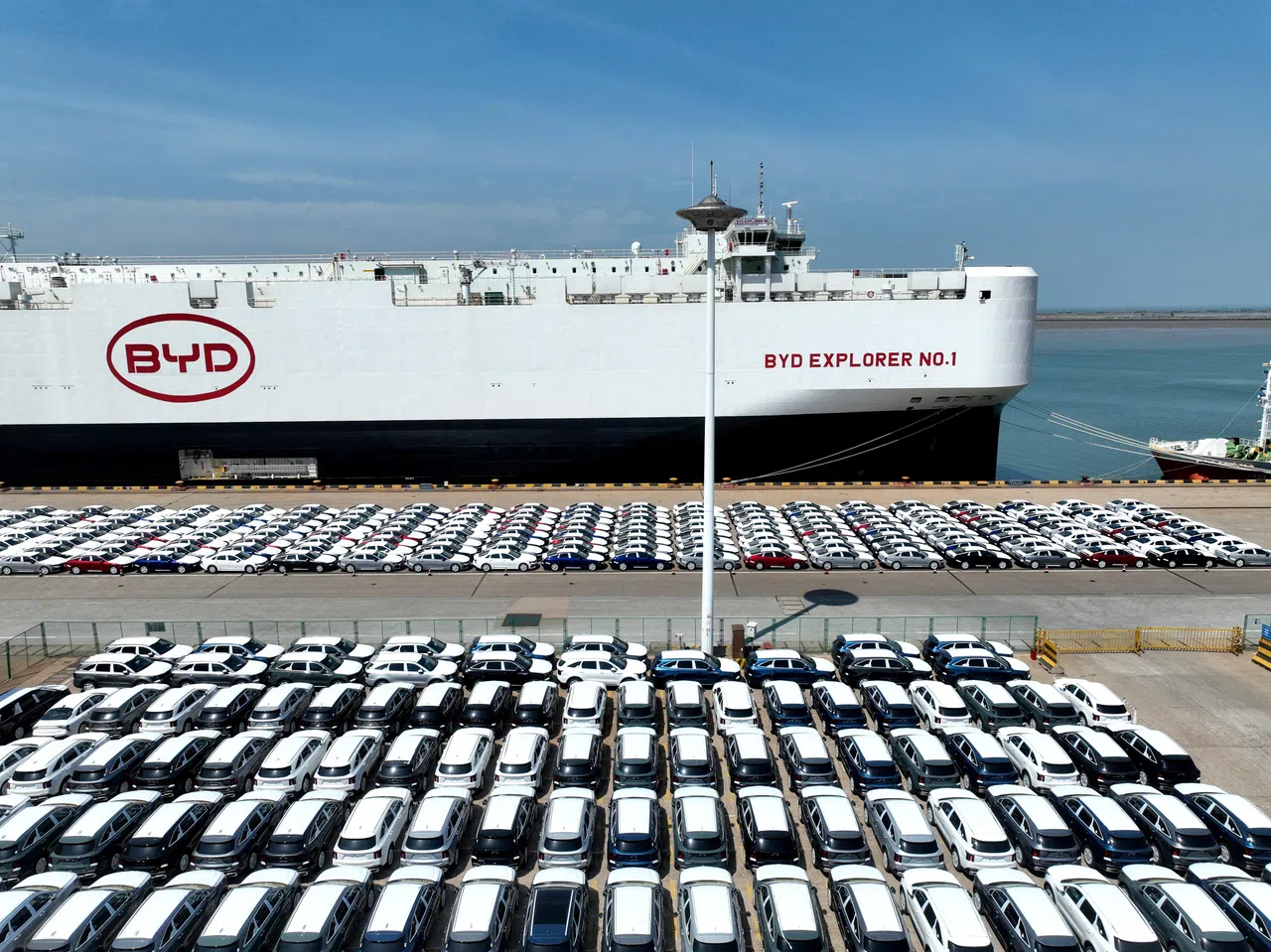Canada will impose new tariffs on Chinese-made electric vehicles, aluminium and steel, lining up behind western allies and taking steps to protect domestic manufacturers.
The government announced a 100 per cent levy on electric cars and 25 per cent on steel and aluminium, confirming an earlier report from Bloomberg News. Prime Minister Justin Trudeau unveiled the policy in Halifax, Nova Scotia, where he’s gathered with the rest of his cabinet for a series of meetings about the economy and foreign relations.
The surtax on electric vehicles will take effect Oct 1 and will also include certain hybrid passenger automobiles, trucks, buses and delivery vans. It will be added to an existing 6.1 per cent tariff that applies to Chinese EVs, the government said in a news release.
The levies on aluminium and steel will come into place Oct 15. The government released an initial list of goods on Monday (Aug 26) and the public will have a chance to comment before it is finalized on Oct 1.
Trudeau’s government is also launching a new 30-day consultation on other sectors, including batteries and battery parts, semiconductors, solar products and critical minerals.
“We are transforming Canada’s automotive sector to be a global leader in building the vehicles of tomorrow,” Trudeau told reporters in Halifax. “But actors like China have chosen to give themselves an unfair advantage in the global marketplace, compromising the security of our critical industries and displacing dedicated Canadian autos and metal workers.”
BT in your inbox
Start and end each day with the latest news stories and analyses delivered straight to your inbox.
Canada, an export-driven economy that relies heavily on trade with the US, has been closely watching moves by the Biden administration to erect a much higher tariff wall against Chinese EVs, batteries, solar cells, steel and other products. Canada’s auto sector is heavily integrated with that of its closest neighbour: The vast majority of its light vehicle production – which was 1.5 million units last year – is exported to the US.
Finance Minister Chrystia Freeland, the most powerful person in Trudeau’s cabinet, has been one of the most prominent voices in favour of a harder approach to Chinese vehicle exports, and becoming a closer trade ally with the US.
In June, she announced a public consultation on possible measures to make it more difficult for Chinese companies to sell electric vehicles in the Canadian market. During an interview with Bloomberg News in July, she said the tariffs consultation might go beyond electric cars.
The government also announced Monday that it will limit eligibility for electric vehicle incentives to products made in countries that have negotiated free-trade agreements with Canada.
It will review the new levies within a year of them coming into effect.
The European Union has also announced proposed new tariffs on electric vehicles important from China, though at lower levels than the US and now Canada are proposing.
Products made by SAIC Motor face additional duties of 36.3 per cent, while Geely Automobile Holdings and BYD each face tariffs of 19.3 per cent and 17 per cent, respectively, according to a draft decision released last week. Tesla will see an extra 9 per cent charge on Chinese-made vehicles.
Chinese leaders plan to raise the issue of tariffs when US National Security Adviser Jake Sullivan visits this week, according to the official Xinhua News Agency. Sullivan is due to meet with Foreign Minister Wang Yi and may also meet with Chinese leader Xi Jinping.
China has retaliated against Canada before. It previously restricted imports of Canadian canola seed for three years – a move seen as retribution for a decision by Canada authorities to arrest Huawei executive Meng Wanzhou in Vancouver on a US extradition warrant. Meng returned to China in 2021.
The value of Chinese electric vehicles imported by Canada surged to US$1.6 billion last year, from less than C$100 million (S$96.6 million) in 2022, according to data from Statistics Canada. The number of cars arriving from China at the port of Vancouver jumped after Tesla started shipping Model Y vehicles there from its Shanghai factory.
However, the Canadian government’s main concern isn’t Tesla, but the prospect of cheap cars made by Chinese automakers eventually becoming available. BYD informed the Canadian government in July that it intends to lobby lawmakers and officials about its plans to enter the country.
Trudeau also faced political and industry pressure. The Canadian auto sector had been pushing him to hike tariffs to protect domestic jobs and wages, arguing that China’s EVs are cheaper due to much weaker labour standards. The government has also bet big on carmakers and manufacturers from democratic allies: the government has agreed to multibillion-dollar subsidies for electric vehicle plants or battery factories for Stellantis NV, Volkswagen and Honda Motor, among others.
Steel and aluminium producers in Canada have also publicly and repeatedly urged the government to restrict China’s access, saying that Xi’s industrial policy allows the Asian powerhouse to unfairly flood foreign markets, putting local jobs at risk. BLOOMBERG



